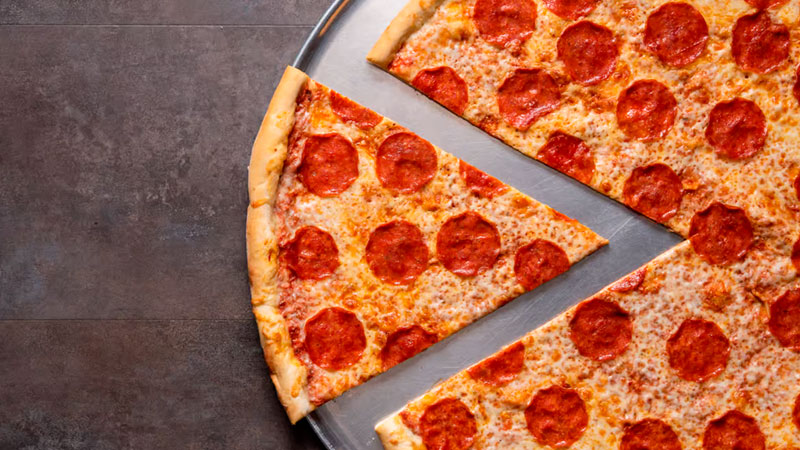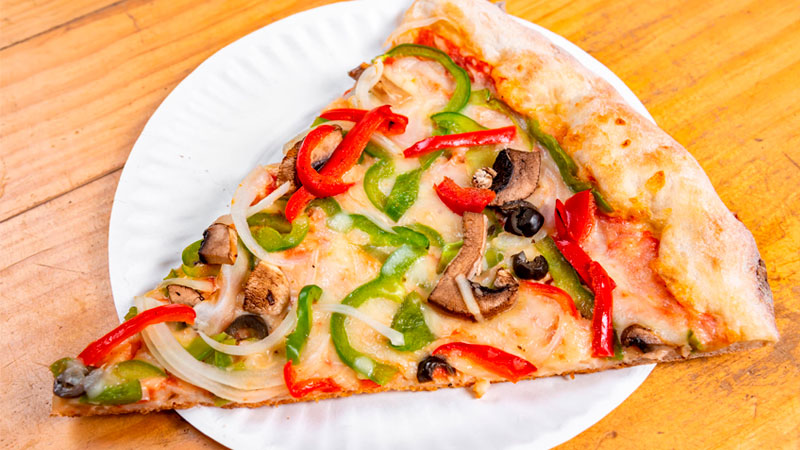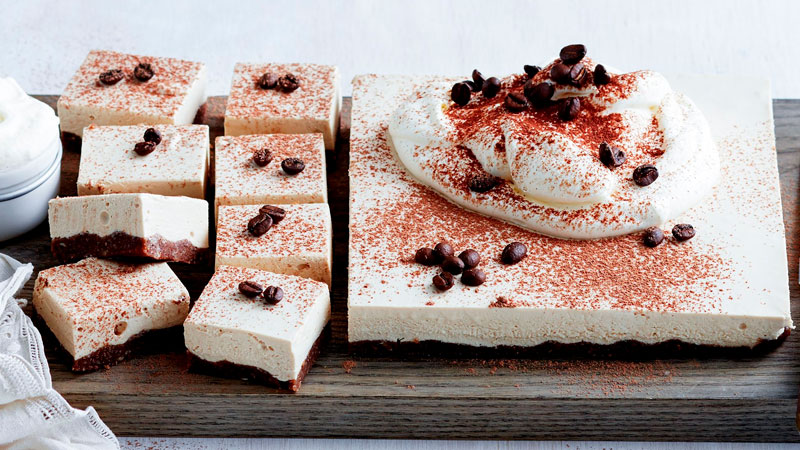Pizza is one of the most popular foods in the world. Whether at a family dinner, a party with friends or simply as a quick dish to satisfy hunger, pizza is often on our menu.
Table of Contents
However, many of us don't stop to think about the amount of calories we're consuming when we enjoy one or several slices.
Pizza is a popular dish all over the world, but how many calories are in one slice? It's important to understand the nutrition of pizza and how many calories it contains so that it can be included in a healthy diet.
An average slice of pizza can vary from 150 to 300 calories, depending on the ingredients and the size of the slice. Cheese pizza is generally the lowest-calorie option, while pizzas with meat and extra cheese tend to be higher in calories. In addition, it's important to bear in mind that the size of the slice can also affect the amount of calories you're consuming. For example, a large slice of pizza can contain twice as many calories as a small slice.
When considering the nutrition of pizza, it's important to look not only at the calories, but also at the amount of fat, sodium and carbohydrates it contains. Pizza can be a good source of protein and calcium, but it can also be high in saturated fat and sodium. When choosing a slice of pizza, it's important to consider your health goals and choose healthier options, such as pizzas with vegetables and less cheese.

Pizza Calories
Calories in a slice of Pizza
A slice of pizza can vary in calories depending on the size and ingredients used. On average, a slice of medium-sized cheese pizza contains around 200 to 300 calories. However, pizzas with additional toppings, such as pepperoni, sausage or bacon, can have more than 400 calories per slice.
In addition, the size of the slice can also affect the calorie count. A large pizza slice can be twice the size of a medium pizza slice, which means it will also have twice as many calories.
Calorie comparison between types of pizza
The amount of calories in a pizza can also vary depending on the type of dough and toppings used. For example, a thin and crispy crust pizza may have fewer calories than a thick and fluffy crust pizza.
Here is a table comparing the calorie count in different types of pizza:
| Type of Pizza | Calories per Slice |
|---|---|
| Cheese Pizza | 200-300 |
| Pepperoni Pizza | 300-400 |
| Sausage Pizza | 350-450 |
| Bacon Pizza | 400-500 |
| Thin Crust Pizza | 150-250 |
| Thick Crust Pizza | 300-400 |
Remember that the calorie count can vary according to the size of the slice and the ingredients used, so these figures should only be used as a general reference. It's important to remember that pizza can be a tasty meal option occasionally, but it should be eaten in moderation as part of a balanced diet.
Pizza Nutrition Facts
Nutritional Value of Pizza
Pizza is a very popular food all over the world, but it's important to remember that it contains a lot of calories and may not be the best choice for a healthy diet. The table below shows the average nutritional values of a medium-sized slice of pizza (100g):
| Nutrient | Amount | % DV* |
|---|---|---|
| Calories | 250 kcal | -- |
| Total Fat | 10g | 15% |
| Saturated Fat | 4g | 20% |
| Trans Fat | 0g | -- |
| Cholesterol | 20mg | 7% |
| Sodium | 500mg | 21% |
| Total Carbohydrates | 30g | 10% |
| Dietary Fiber | 2g | 8% |
| Sugars | 4g | -- |
| Protein | 12g | 24% |
*% DV: Percent Daily Value based on a 2,000 kcal diet.
As you can see from the table, a slice of pizza can contain a significant amount of fat, sodium and carbohydrates. However, pizza can also be a source of protein and fiber, depending on the ingredients used.
Impact of Pizza Calories on Health
The calories in a slice of pizza can vary depending on the ingredients used. For example, a slice of pepperoni pizza may contain more calories than a slice of vegetable pizza. In addition, the size of the pizza slice can also affect the amount of calories consumed.
However, excessive calorie consumption can lead to weight gain and increase the risk of chronic diseases such as diabetes and heart disease. It is therefore important to limit pizza consumption and choose healthier options, such as vegetable pizza with a low-fat cheese topping.
Pizza can be a tasty option for an occasional meal, but it's important to remember that it can be high in calories and shouldn't be consumed frequently as part of a healthy diet.

Nutritional information
In addition to calories, it is crucial to consider other nutritional aspects:
- Protein: A slice of pizza can provide a good amount of protein, especially if it contains protein-rich meats or cheeses.
- Fats: Fats can be high, especially on pizzas with processed meats and fatty cheeses.
- Fiber: Pizzas with more vegetables and whole grain pasta will provide more fiber.
- Sodium: Many pizzas are high in sodium, which can be a concern for people with blood pressure problems.
Make Healthier Choices
- Choose Whole Grain Pasta: Opt for pasta made with whole grains to add fiber to your meal.
- Prefer Vegetables: Vegetables such as peppers, onions and spinach can add flavor without too many calories.
- Moderation is Key: Limit the number of slices you consume.
- Avoid or Limit Rich Sauces: Sauces such as garlic and cheese can add extra calories.
- Make it at Home: Making pizza at home allows you to control the ingredients and, consequently, the calories.
Conclusion: Calories in a Slice of Pizza
Based on the data presented in this article on pizza calories, the nutritional information and the amount of calories in a slice of pizza vary according to the ingredients used in its preparation.
Although pizza is a popular option for many people and one of life's little pleasures, it is essential to be aware of the calories and nutritional content. It's important to remember that excessive calorie consumption can lead to weight gain and other health problems. It is therefore recommended that people monitor their calorie intake and choose healthier options when possible.
By making conscious and balanced choices, people can enjoy a slice of pizza from time to time without compromising their health and well-being.
Eat well, live better!




